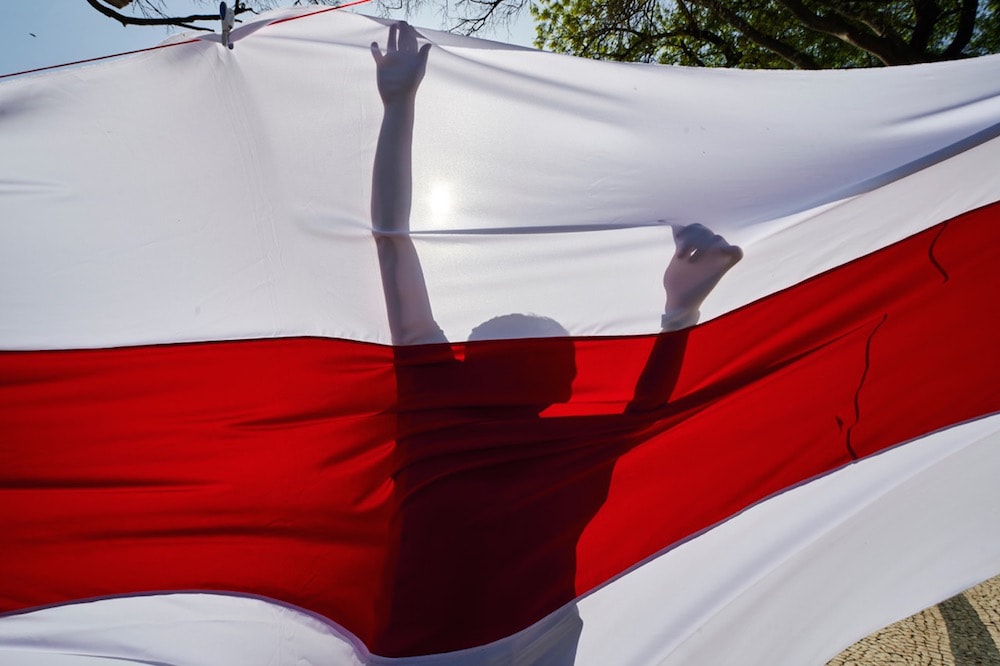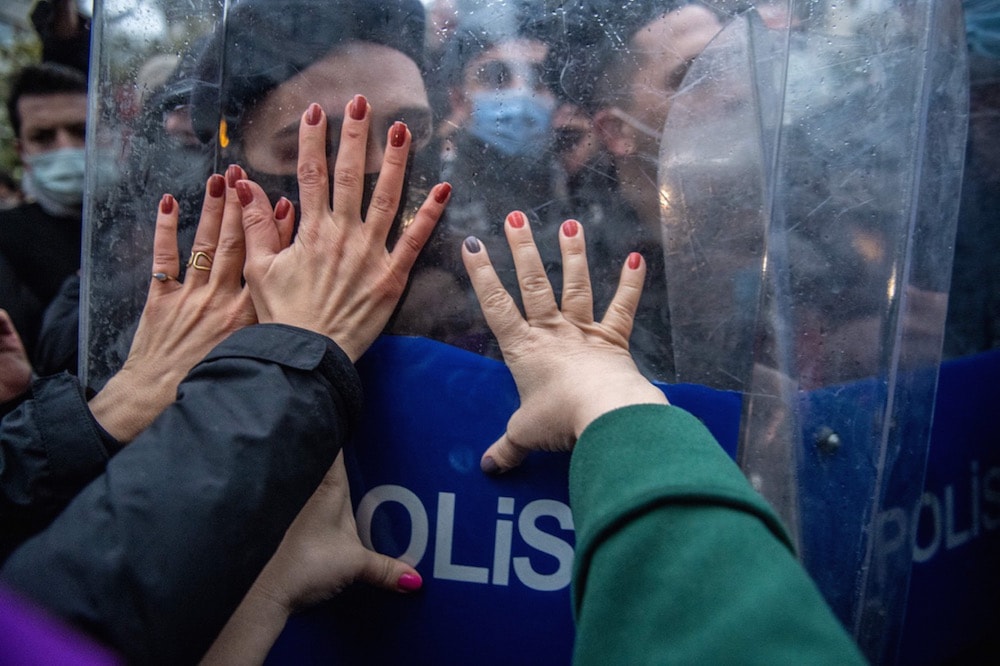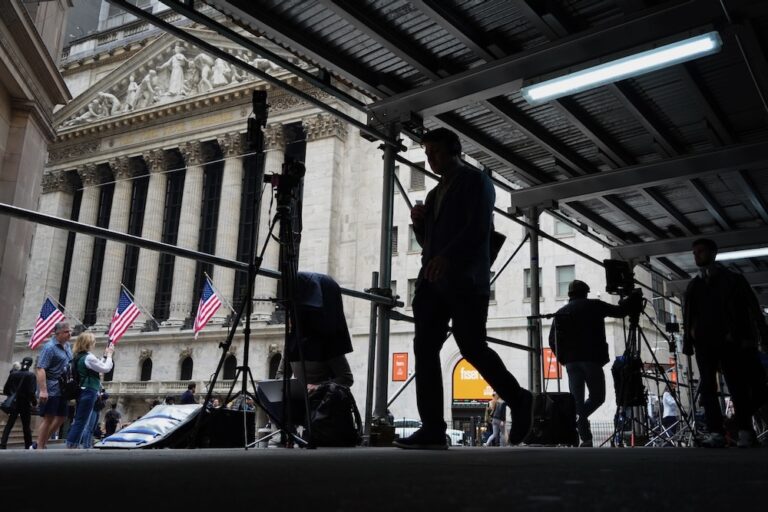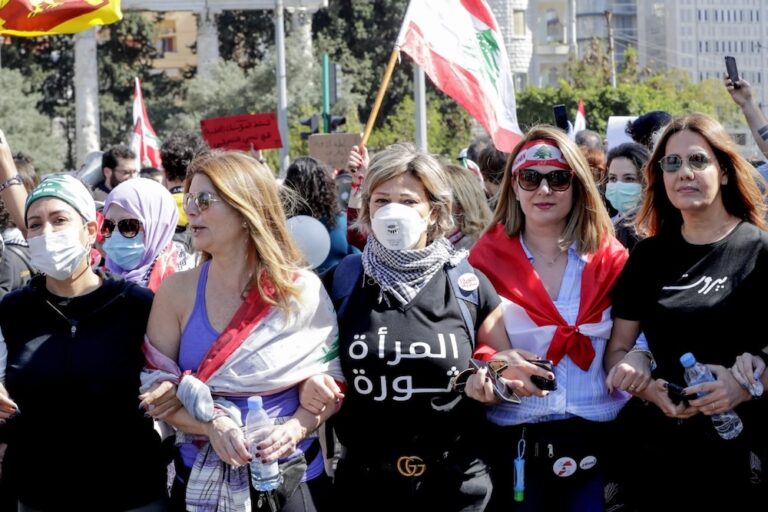During 2020, according to data collected for PEN America’s Freedom to Write Index, at least 273 writers, academics, and public intellectuals in 35 countries - in all geographic regions around the world - were in prison or unjustly held in detention in connection with their writing, their work, or related activism.
This statement was originally published on pen.org on 21 April 2021.
On April 3, 2020, as COVID-19 cases surged on multiple continents, prompting lockdowns and states of emergency and casting a global pall of anxiety and grief, renowned Indian author and winner of the Man Booker Prize Arundhati Roy wrote an essay entitled, “The Pandemic is a Portal.” In what was perhaps the first great piece of writing about the pandemic, Roy did what writers, more than any other figures in our society, are uniquely equipped to do. She shined an unflinching light on humanity, on the societies and structures we have built, and how they were failing us in our moment of need. She showed us not only what was new and novel about the pandemic, but what old, long-established, and deeply entrenched inequities it was rapidly exposing. She wrote primarily about India but told a story that was true of many countries around the world – of governments too consumed by politics to mount an efficient public health response, of a catastrophic lack of planning or preparedness, of overlapping crises, and of people left in fear and uncertainty. And yet, despite the grim images in the mirror she held up for us, she also offered hope. She placed our chaotic, anxiety-ridden moment in historical context, and showed us that this crisis held the potential for a moment of great transformation:
“Historically, pandemics have forced humans to break with the past and imagine their world anew. This one is no different. It is a portal, a gateway between one world and the next. We can choose to walk through it, dragging the carcasses of our prejudice and hatred, our avarice, our data banks and dead ideas, our dead rivers and smoky skies behind us. Or we can walk through lightly, with little luggage, ready to imagine another world. And ready to fight for it.”
Writers have played an essential role during the pandemic, analyzing and critiquing government responses, documenting personal experiences, and shocking us into recognition that we must not return blindly to patterns of the past. The protest movements that spanned the globe in 2020 calling for racial justice, the defense of democracy, and a reckoning with historical wrongs also made plain the essentiality of not reverting to a static “normality,” but purposefully moving forward to build a more just and equitable future. It is no coincidence that writers and artists played an essential role in many of those movements, nor is it surprising that they were targeted for it. Not only does Roy’s essay show us the potential of this historic moment of trauma and transformation, but it also demonstrates the power that writers have to help us to make sense of this time, and to envision what comes next.
For those with a vested interest in maintaining the status quo, that power poses a threat. Political leaders the world over – in autocracies and fragile democracies alike – have used the pandemic and protest movements as an excuse to further constrain rights rather than expand them; they have wielded laws about disinformation as a means of silencing the truth; and they have specifically targeted those with the power to imagine and inspire. What lies on the other side of this portal is yet to be determined, but there is no question that the influential voices of writers are indispensable in helping us to find the path forward, and that the freedom to write has never been more essential to defend.
States of Emergency: The Pandemic, Protests, and the Persistent Assault on Global Free Expression
The climate for free expression globally continued to deteriorate in 2020, with existing challenges in authoritarian and more democratic political environments compounded by new threats. Most dramatically, the COVID-19 pandemic added unprecedented dimensions to existing crises for millions around the world and sparked new threats to freedom of expression. In the context of a global public health crisis, the ability to communicate freely and share and receive information quickly became a lifeline. Writers have helped expose truths and counter falsehoods in ways that have shaped the global public health response. At the same time, the emergency provided cover for crackdowns on human rights and expansions of government power over speech and expression. A proliferation of global protest movements during 2020 also represented a powerful unleashing of vocal public demands for change – and sparked a countervailing effort to restrict protest rights and detain those who raised their voices to demand freedom and equality. Writers and public intellectuals have played an essential role in narrating and shaping our perception of this singular moment, and in all too many cases, they have paid a price for doing so.
During 2020, according to data collected for PEN America’s Freedom to Write Index, at least 273 writers, academics, and public intellectuals in 35 countries – in all geographic regions around the world – were in prison or unjustly held in detention in connection with their writing, their work, or related activism. This represents a sizable increase from the 238 individuals counted in the inaugural 2019 Freedom to Write Index. By holding these individuals behind bars, their governments are depriving them of their individual right to free speech, while also robbing the broader public of access to their innovative and influential voices of dissent, criticism, creativity, and conscience. The top three countries – China, Saudi Arabia, and Turkey – still accounted for a majority of cases, 50 percent, down from 59 percent in 2019. Meanwhile, numbers increased in Iran and Egypt, and expanded dramatically in Belarus, which accounted for zero cases in the 2019 Index, but now ranks as the fifth worst jailers of writers and intellectuals, with 18 documented cases (or 7 percent of the total), as a result of a brutal post-election crackdown on mass protests that has also targeted translators, artists, and other cultural figures.

A demonstrator is silhouetted while hanging a Belarusian flag during a protest attended by opposition leader Svetlana Tikhanovskaya, in Lisbon, Portugal, 6 March 2021, Horacio Villalobos/Corbis/Corbis via Getty Images
Writers Imprisoned Globally: 2020
While many writers included in the Index hold multiple professions and are, for example, both literary writers and poets, the most prevalent professions of those incarcerated are: literary writers (107), scholars (54), poets (57), singer/songwriters (30), publishers (13), editors (11), translators (8), and dramatists (3). Of these 273 individuals, 2 died while in custody, 3 died following their release, and 176 – roughly two-thirds – remain in state custody at the time of this report’s publication.
The majority of those writers and intellectuals included in the 2020 count were initially imprisoned or detained prior to 2020, or had faced previous detention or imprisonment. Of the 273 in prison or detention during 2020, roughly 71 percent of them had also spent multiple days behind bars in 2019. This figure also includes 12 cases of individuals who were detained or imprisoned prior to 2020 but whose status only became publicly known during the past year. Such cases are common especially in environments where there is little transparency to the judicial process and limited press access; for example, in Xinjiang and Tibet in China. In many of these cases, detention is not confirmed until formal charges are made. The remaining roughly 29 percent of the 2020 Index comprises 79 writers and intellectuals, in 25 different countries, who were newly detained or imprisoned in 2020.
The largest number of new cases of writers and public intellectuals detained or imprisoned in 2020 came from Belarus, where the cultural community has played a leading role in the protests that followed the August 2020 presidential election, in which Alexander Lukashenka claimed victory despite election monitors concluding the election was “neither free nor fair,” and the European Union rejecting what it called the “falsified” results. Lukashenka’s regime has responded to the protests with a violent crackdown and widespread detentions, and has targeted influential cultural figures playing a role in the protests and broader movement to reject Lukashenka’s authoritarian rule. As a result, after having had no cases included in the 2019 Index, Belarus entered the top tier of the 2020 Index, ranking fifth in the world for detaining and imprisoning writers and intellectuals.
The remaining majority of these 79 new cases of writers and intellectuals have been detained or imprisoned during 2020 in countries that were within the top 10 jailers of this group in the previous Freedom to Write Index: China (12), Egypt (6), Vietnam (5), Iran (5), Saudi Arabia (3), India (3), and Turkey (2). Individuals were also newly detained or imprisoned during 2020 in countries that held a smaller number overall, including Bangladesh (3), Thailand (3), Cambodia (2), Cuba (2), the Palestinian Territories (2), Sri Lanka (2), Israel (1), Jordan (1), Kazakhstan (1), Morocco (1), Oman (1), Pakistan (1), South Sudan (1), Sudan (1), Tajikistan (1), Uganda (1), and Venezuela (1).
Importantly, a number of these newly detained writers have also been threatened, harassed, or detained for their work in the past, with their 2020 detentions forming part of a larger pattern of ongoing governmental retaliation against them for their writing or expression over time. Writers who fall within this subset include Moroccan historian Maati Monjib, Chinese legal scholar Xu Zhangrun, Palestinian writer Abdullah Abu Sharkh, Iranian literary and arts critic Anisa Jafari-Mehr, and Indian professor of literature Hany Babu.
Many of the trends documented in the 2019 Freedom to Write Index persisted in 2020. National security remains the primary claim authorities use to justify detaining or imprisoning writers and public intellectuals: at least 55 percent of detentions were based on allegations of undermining national security or membership in a banned group. Arbitrary detentions – unaccompanied by formal charges – made up at least 20 percent of the cases, leaving the accused writers and intellectuals in a state of legal limbo, without recourse to challenge the claims against them. Cases of arbitrary detention are particularly common in Saudi Arabia, where at least 66 percent of writers and public intellectuals are held on unknown or undisclosed charges.
Charges related to organizing, assembly, and activism were used in at least 16 percent of cases against writers. Retaliatory criminal charges, defamation, and charges related to disinformation were levied against writers as well, though in fewer instances. At least 25 cases were identified of writers and public intellectuals detained for alleged disinformation crimes, including those related to spreading allegedly false news about COVID-19, demonstrating the troubling ways in which authorities have abused such laws to quash critics and quell divergent views. A relatively smaller percentage of cases were brought against writers for allegedly making threats against religious authority, producing obscene materials, or inciting violence. One of the most significant trends of 2020 has been the targeting of writers, commentators, and others who have spoken out in criticism of their governments’ responses to the COVID-19 pandemic; these cases were often brought on the grounds of national security, public order, or prohibitions against disinformation.
Governments of countries in the Asia-Pacific region continued to jail the most writers and intellectuals for their writing or expression. In total, 121 – or nearly half of the global count – were jailed in Asia-Pacific, with the vast majority of those, 81, held in China. Significant numbers of writers were also held in Vietnam (11), India (9), and Myanmar (8). Countries in the Middle East and North Africa have also jailed significant numbers of writers and intellectuals, including Saudi Arabia (32), Iran (19), and Egypt (14). Countries in this region contributed to almost a third of the global count of imprisoned and detained writers, at least 81 individuals, in 2020.
Detentions and imprisonments of writers and intellectuals in Europe and Central Asia occurred largely in two countries: Turkey and Belarus. Turkey maintains its position as the jailer of the third-highest number of writers and public intellectuals worldwide, having held 25 of the 50 prisoners and detainees in Europe and Central Asia during 2020. The crackdown against those protesting Belarus’s stolen presidential election led to a startling number of writers and cultural figures being detained or imprisoned: while Belarus did not jail any writers in 2019, in 2020 the number jumped to at least 18 that can be documented – the actual number is likely higher. Countries in sub-Saharan Africa contributed to roughly 5 percent of the 2020 Index, representing 14 writers and public intellectuals detained or imprisoned. Two countries in the Americas contributed to just three percent of the 2020 Index, with six writers detained or imprisoned in Cuba and one in Venezuela.
Top 10 Countries:
1. China (81)
2. Saudi Arabia (32)
3. Turkey (25)
4. Iran (19)
5. Belarus (18)
6. Egypt (14)
7. Vietnam (11)
8. India (9)
9. Eritrea (8)
10. Myanmar (8)
Tragically, four writers who were detained during 2020 died in circumstances that appear related to their detentions: Saudi columnist Saleh Al-Shehi died from possible COVID-19 complications on June 19, 2020, after being released from prison and then spending three weeks on a ventilator; Uyghur poet and editor Haji Mirzahid Kerimi died in custody on January 9, 2021 while imprisoned for publishing “problematic” books; Bangladeshi writer Mushtaq Ahmed died in a prison hospital on February 25, 2021, after nearly 11 months in detention, and after being denied bail six separate times; and Egyptian writer Amin El-Mahdy died on October 11, 2020, 11 days after being released from detention. The jailing of writers and others unjustly detained or imprisoned amid the ongoing coronavirus pandemic represents a harrowing – and life threatening – nexus between these concurrent crises of global public health and free expression in retreat.
In this report, PEN America will provide an in-depth analysis of the countries that detain and imprison the largest numbers of writers and intellectuals and explore the impact of the pandemic on the freedom to write; the role of these individuals in protest movements; and the continued threats to writers and intellectuals working in languages subject to political repression.
Continue reading the Freedom to Write Index.
For PEN America’s complete, up-to-date database, see the Writers at Risk Database



